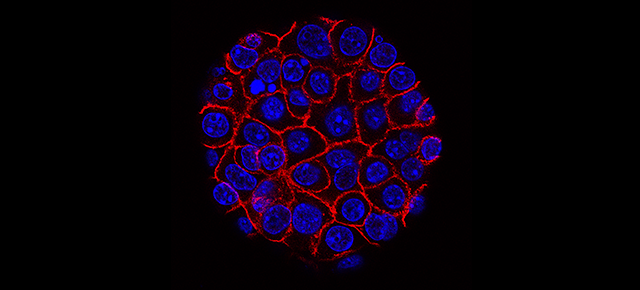Image of the Month: The developing eye
The Ross Poché lab is dedicated to elucidating the transcriptional and epigenetic mechanisms regulating proliferation and differentiation of retinal progenitor cells to identify new therapeutic interventions to restore sight and treat cancers such as retinoblastoma.

Another goal of the lab is to identify new strategies to promote retinal regeneration in response to photoreceptor damage. They are interested in determining whether the mouse retina retains latent regenerative potential akin to that in other vertebrates such as zebrafish, and whether it’s possible to genetically “awaken” that potential to restore sight. Read their intriguing results on this topic in the journal Cell Reports and in From the Labs.

Another focus of the Poché lab is to generate and characterize novel mouse models recapitulating human craniofacial and neurodevelopmental birth defects. Recently, they have uncovered a previously unknown transcription factor network that is responsible for development of the neural crest-derived craniofacial skeleton.
To achieve its goals, the lab applies a multi-disciplinary approach utilizing genetic loss- and gain-of-function experiments, molecular biology and live retinal confocal microscopy.

Dr. Ross Poché is an assistant professor of molecular physiology and biophysics and a member of the Dan L Duncan Comprehensive Cancer Center at Baylor College of Medicine. He also is affiliated with the Intellectual and Developmental Disabilities Research Center and the Cullen Eye Institute, both at Baylor.



